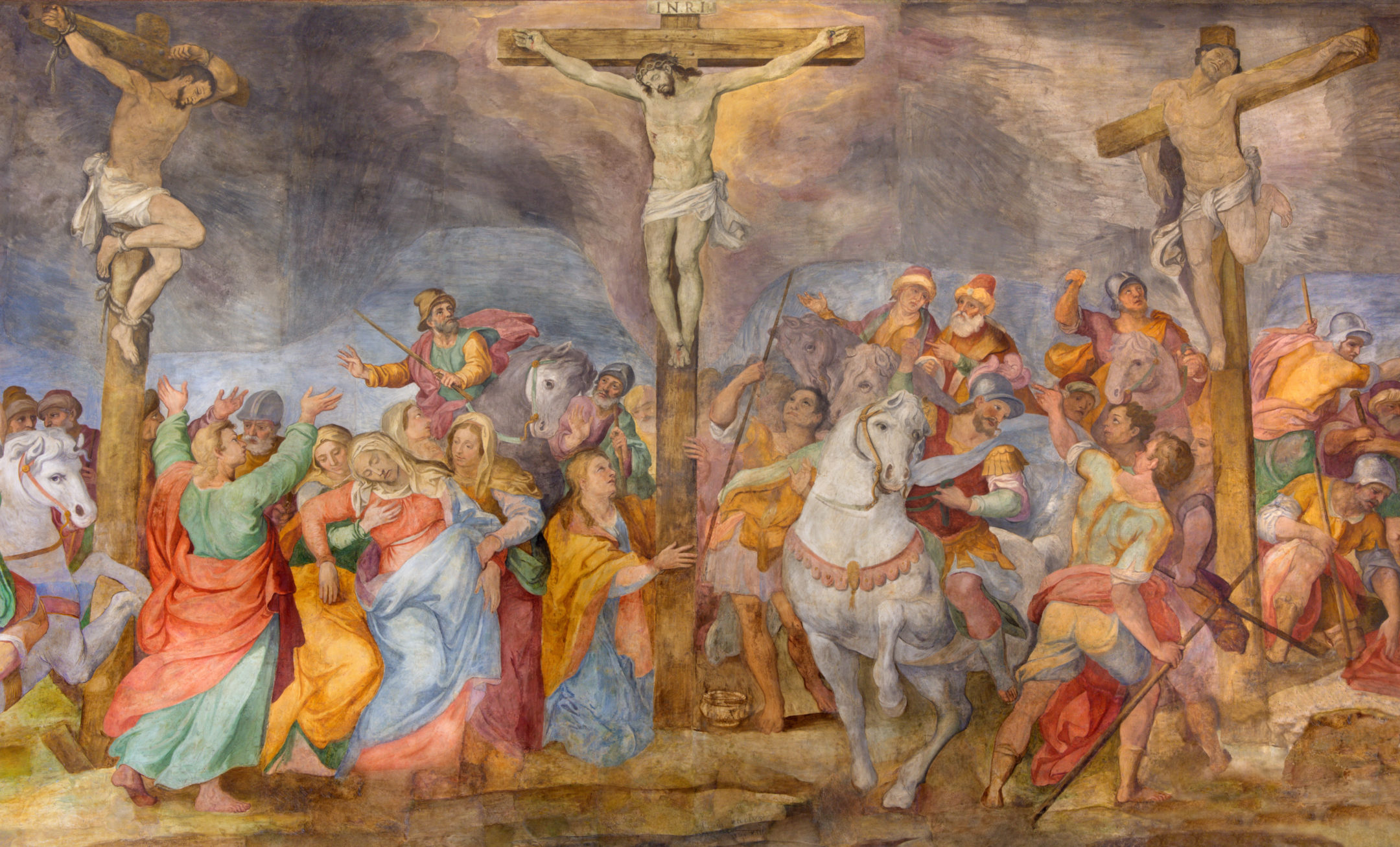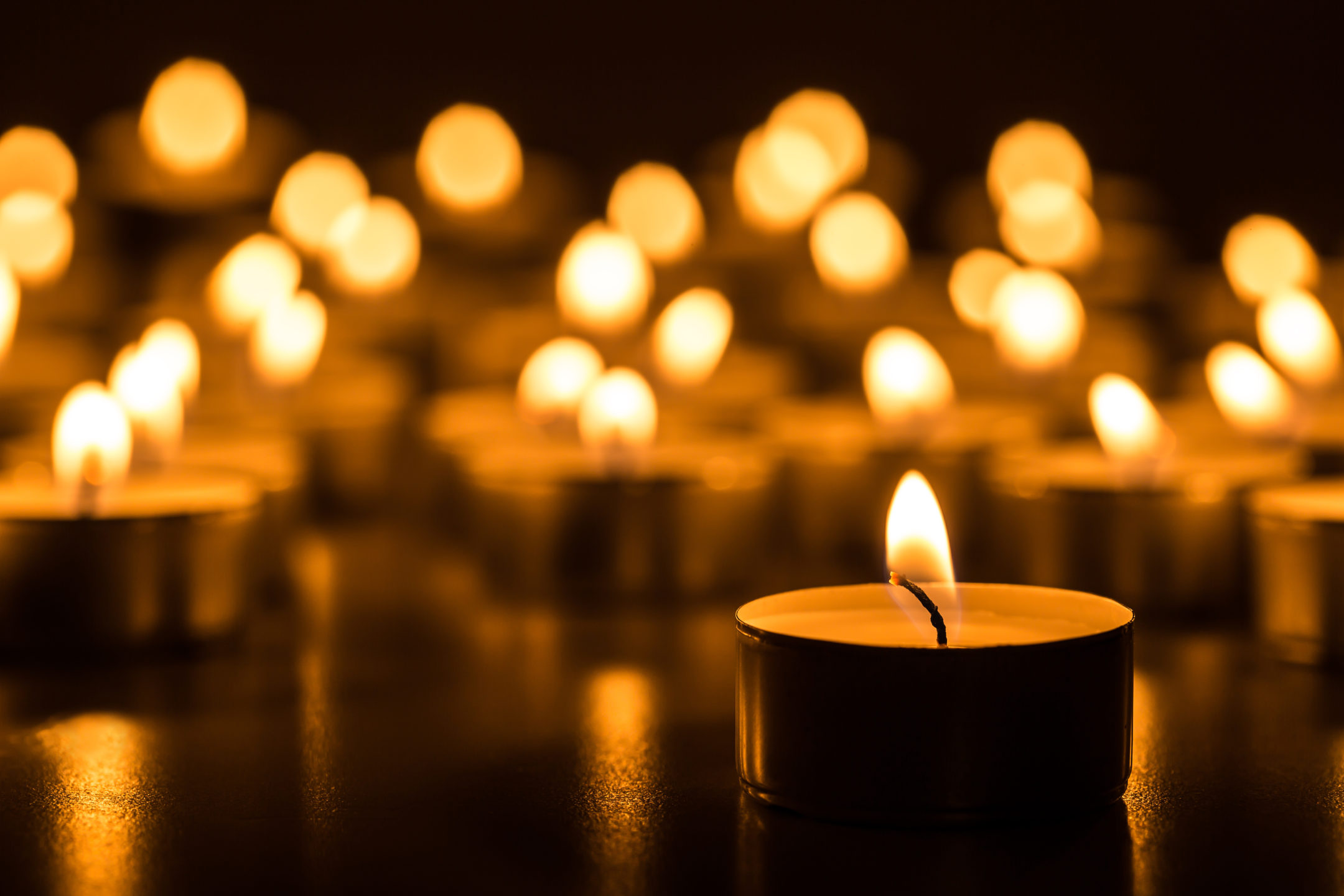He reconciled us to himself through the very weapon of his murder. He saved us by his cross.
It is a day of starkest beauty. There is no Mass anywhere on earth. The tabernacle is empty. The sanctuary lamp is dark. The odd liturgy is punctuated by long silences, awkward transitions, and bold gestures.
The clergy enter without a sound and prostrate themselves on the floor, where they remain for a long time.
We offer prayers for people at varying degrees of estrangement from Jesus Christ.
People stream forward to kiss the cross.
The rite moves abruptly from the Liturgy of the Word to the distribution of Holy Communion. There is no Eucharistic Prayer. The hosts were consecrated the night before. Today, there are none of the Mass’s heavenly songs: no “Glory to God in the Highest,” no “Holy, Holy, Holy,” no “Lamb of God.”
This day has an austerity like no other — and it extends beyond the liturgy. It is one of only two days during the year when the Church requires its members to fast. So even our eating is minimal, and we feel the range of edgy emotions brought on by hunger.
It’s a strange day. If the weather is seasonably springy, it seems out of kilter. In many ways, Good Friday resembles those days when we are grieving the death of a friend or family member. It seems wrong for the world to go on with its business. It should stop, we feel, and recognize the enormity of what has happened.
And what exactly has happened?
We have killed our God.
So often we have wished him away by our sinning. But on Calvary we saw our opportunity and seized it.
We don’t like to be shown up by people. We wince when we’re corrected. And here came a man whose goodness was a constant reproach to our sloth, greed, lust, gluttony, envy, wrath, and pride. “To us he is the censure of our thoughts; merely to see him is a hardship for us, because his life is not like that of others, and different are his ways” (Wisdom 2:14-15).
So we put him in his place, which was far from us — outside the walls, in fact — and then we sealed up the evidence with a gigantic stone.
We even found people to blame for his murder: Romans, Jews, governments, mobs, others. We had our alibis ready.
But his life was larger than the tomb we made for him. His truth was stronger than any bonds we placed him in — including the bonds of death. And his love was so great that he was willing to forgive us everything.
He reconciled us to himself through the very weapon of his murder. He saved us by his cross.
We keep this day every year to remind ourselves what we’re capable of doing. We keep a day so simple, so stark, that it cannot be forgotten.
Only when we look through the lens of his love — as it’s rendered in the Church’s liturgy — can we see the true and profound beauty of this day.

